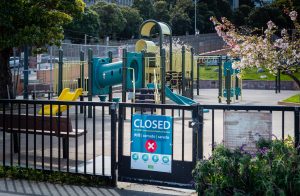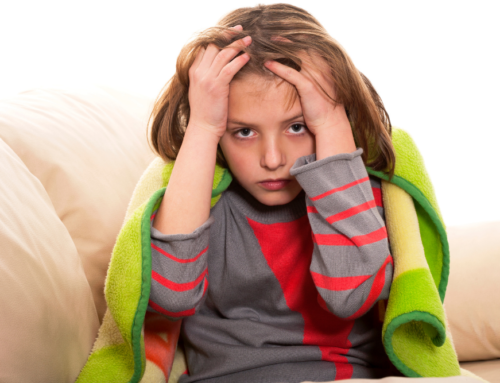Article written by: Jennifer Welton, MA, MS, LPCC
Who knew as we rang in the 2020 New Year that we would be experiencing a global pandemic?
At this point, we might be in the flux of opposing thoughts and emotions. Think about all the opposites that go through your mind when you hear or read news about COVID-19:“How will we ever get by?” And your opposite thought may be “We’ll be fine.” Your mind might be racing from catastrophic thinking to normalcy to denial in a continuous loop.
The reality is that it’s ok to have both thoughts running on repeat in your mind. Accepting that you will have difficulty keeping the old normal at home will help you to integrate change and adapt to the new normal. Lately I’ve noticed many psychotherapy articles and blogs are encouraging mindfulness practices to help you address stressful and anxious behavior that we might be seeing in our children and ourselves.
Why is mindfulness so important? Who has time for mindfulness? As Americans, we are typically proud of our ability to multi-task, so this seems opposite of what we’ve been told. Mindfulness is a practice that slows us down when we feel anxiety. The theory behind mindfulness has been around for thousands of years. Jon Kabat-Zinn, a professor of medicine, and the founder of Mindfulness-Based Stress Reduction at the University of Massachusetts Medical School, said that “mindfulness is the ability to be aware of your thoughts, emotions, physical sensations, and actions – in the present moment – without judging or criticizing yourself or your experience.” All you need is a single moment to start practicing.
Depending on your extroversion or introversion levels, the phrase “Shelter in Place” can feel confining to some and safe to others. No matter where you land on that scale, here are three ways to find “shelter” in your place based on popular children’s songs.
“The Bare Necessities” from the Jungle Book- This song encourages listeners to “forget about your worries and your strife” and “don’t spend your time lookin’ around for something you want that can’t be found.” This song reminds us that now is a time to keep your life and routine as simple as possible. Have compassion for the part of you that is having a difficult time and recognize that you don’t need to be learning a new language, planting a vegetable garden or working out every day get this pandemic “right.” It’s OK to be merely surviving right now.
“Shake it off” from the movie Sing- The movie soundtrack will get your “quaranteam” up and moving! The phrase “Shake it off” has significance in two ways. First, when emotions hit, it may be useful to acknowledge them, and let them go. Shaking off your emotions instead of dwelling too much in them, can add a layer of mental protection to your day. On the other hand, “Shake it off” is also an expression for dancing, or movement. Although you might be stuck inside, allow yourself some time each day to experience joyful movement. This may look like dancing in the living room with your kiddos or taking the dog for a walk. To reiterate, you do not need to be training for a marathon to experience joyful movement.
“Let it Go” from Frozen.-This could become a mantra for most, as we struggle with, “A kingdom of isolation and it looks like I’m the queen.” You can insert “King,” “Prince” instead of queen there, it’s your choice. Thinking of this song, it’s a useful reminder to recognize that social distancing does not mean social isolation. You’re in charge of how socially connected you are at this time. Thankfully there are several technologies available to continue communicating with your friends and loved ones at this time like Zoom or FaceTime.
I hope you find laughter, peace, authenticity, love, compassion, and refuge in your “Shelter” in place.
About the Author:
Jennifer is a Mental Health Consultant with Community Reach Center. She is a Licensed  Professional Counselor Candidate with a Master of Science in Clinical Mental Health Counseling. Jennifer also has over ten years of experience in education and holds a Master of Arts in Educational Psychology. Before working for Community Reach Center, Jennifer worked for a behavioral health hospital in the Pediatric Inpatient, Intensive Outpatient and Partial Hospitalization units. Jennifer’s interests are mindfulness meditation and practicing self-compassion.
Professional Counselor Candidate with a Master of Science in Clinical Mental Health Counseling. Jennifer also has over ten years of experience in education and holds a Master of Arts in Educational Psychology. Before working for Community Reach Center, Jennifer worked for a behavioral health hospital in the Pediatric Inpatient, Intensive Outpatient and Partial Hospitalization units. Jennifer’s interests are mindfulness meditation and practicing self-compassion.



